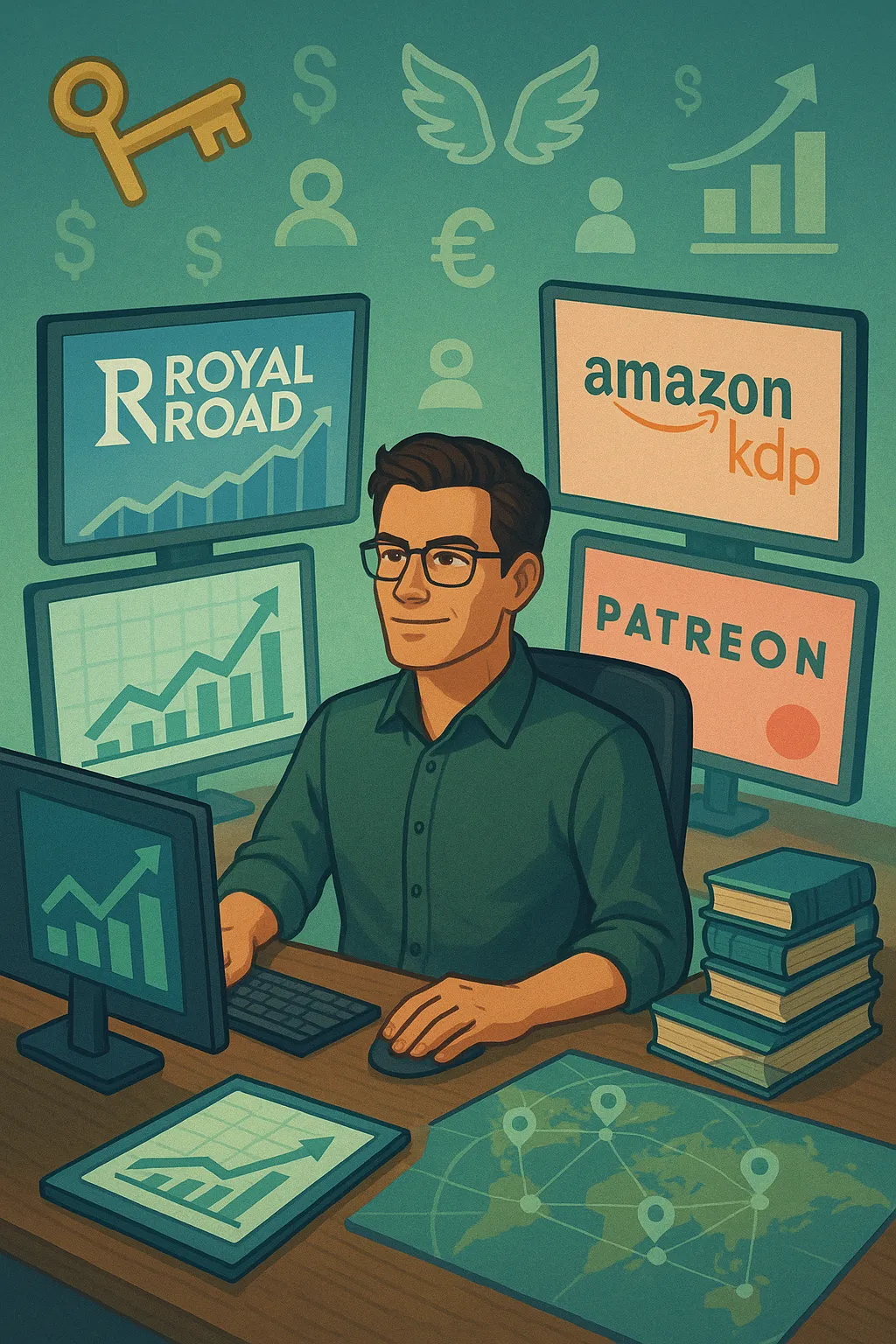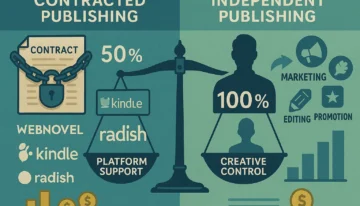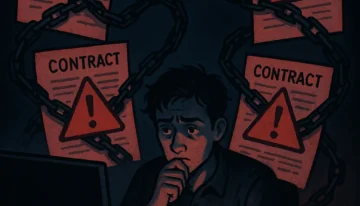Going Solo: How Web Novel Authors Build Revenue Without Contracts
While the web novel industry buzzes with warnings about restrictive platform contracts, a growing number of authors are finding success by staying independent. The Global Web Novel Market revenue is expected to reach USD 32.97 billion in 2024, growing at a CAGR of 14.9%, creating opportunities for savvy independent authors who choose to retain full control over their work.
The Independent Author Advantage
Unlike contracted authors who must navigate complex agreements and revenue splits, independent web novel writers maintain complete ownership of their intellectual property, pricing flexibility, and creative freedom. This approach requires more self-directed effort but can yield higher long-term returns.
Full Creative Control: Independent authors can write what they want, when they want, without editorial mandates or content restrictions imposed by platform contracts.
Higher Revenue Percentage: If all of Sullivan’s books were self-published using Kindle Direct Publishing (KDP), he would be taking home 70 percent of the sale, earning $6,190 per month compared to traditional publishing splits.
Multi-Platform Flexibility: Without exclusive contracts, authors can simultaneously publish across multiple platforms to maximize reach and revenue streams.
Revenue Strategies for Solo Authors
1. Multi-Platform Publishing
Independent authors typically establish presence across several platforms:
- Royal Road: Free hosting with strong fantasy/LitRPG community
- Kindle Direct Publishing: 70% royalty rate on sales
- Patreon: Subscription-based reader support
- Personal websites: Direct reader relationships and full revenue retention
2. The Royal Road to Success Pipeline
I’ve seen a number of debut authors selling huge numbers of books on Amazon after releasing their first LitRPG book. Often, after digging into their success, I’ve found that they’ve come from Royal Road. This platform serves as a proving ground where authors build audiences before transitioning to paid platforms.
The typical progression involves:
- Publishing chapters for free on Royal Road to build readership
- Engaging with the community and receiving feedback
- Eventually publishing compiled volumes on Amazon KDP
- Maintaining reader loyalty across platforms
3. Subscription and Patronage Models
Patreon has become increasingly popular among web novel authors, allowing readers to support creators directly through monthly subscriptions in exchange for early access to chapters, exclusive content, and community interaction.
Income Potential and Realities
The Numbers Game
Authors in the highest income brackets are far more prolific, with those earning over $20,000 publishing an average of 61 books. Meanwhile, authors in the lower income brackets have typically published fewer titles, with the $100 or Less group averaging 9 titles.
This data highlights a crucial reality: successful independent authors must be prolific. The most successful indie authors treat writing as a business, consistently producing content across multiple series and platforms.
Building Sustainable Income
Independent web novel authors report various income levels:
- Beginners: $0-$500 monthly from combined sources
- Established authors: $1,000-$5,000 monthly across platforms
- Top performers: $10,000+ monthly through diverse revenue streams
The key differentiator isn’t just quality but consistency, marketing savvy, and understanding of their target audience.
Challenges of Going Solo
Marketing and Discoverability
Without platform promotional support, independent authors must master:
- Social media marketing
- Community engagement
- Search engine optimization
- Cross-platform promotion strategies
Time Management
Independent authors juggle multiple responsibilities:
- Writing and editing
- Cover design or commissioning
- Marketing and promotion
- Community management
- Business administration
Financial Unpredictability
Unlike contracted authors with guaranteed minimums, independent revenue fluctuates based on:
- Release schedules
- Market trends
- Algorithm changes on platforms
- Seasonal reading patterns
Success Stories and Lessons
The most successful independent web novel authors share common traits:
Consistency: Regular publishing schedules that keep readers engaged Community Building: Active engagement with readers across platforms Genre Expertise: Deep understanding of their target audience’s preferences Business Mindset: Treating writing as a professional endeavor, not just a hobby
Many authors report that while the initial income may be lower than contracted minimums, the long-term potential for growth and control over their creative destiny makes independence worthwhile.
The Future of Independent Web Fiction
As the web novel market continues its rapid expansion, independent authors who can effectively navigate multiple platforms and build direct reader relationships are positioning themselves for sustained success. The key lies in treating independence not as a fallback from contracts, but as a deliberate business strategy that prioritizes long-term creative and financial freedom.
For aspiring web novel authors, the choice between contracts and independence ultimately depends on individual goals: immediate income stability versus long-term creative and financial control. The growing success stories of independent authors suggest that with dedication, business acumen, and consistent output, going solo can be not just viable, but potentially more lucrative than restrictive platform contracts.
Success in independent web novel publishing requires treating writing as both an art and a business, with authors serving as their own publishers, marketers, and community managers.








